#tune.fm
Explore tagged Tumblr posts
Text
Blockchain Music Platform Tune.fm Raises $50 Million
Tune.fm, a blockchain-based music streaming platform, has announced a new investment of $50 million from Global Emerging Markets. This brings the platform’s total funding to $80 million, demonstrating growing interest in the potential of decentralized music distribution. The new investment will be used to provide liquidity for Tune.fm’s native token, JAM. JAM plays a central role in the…
1 note
·
View note
Text
From Nicola Formichetti to Alex Wang to Meta: Fashion and Tech Icons Unite at Fashion Month Kickoff Hosted by The DFDC
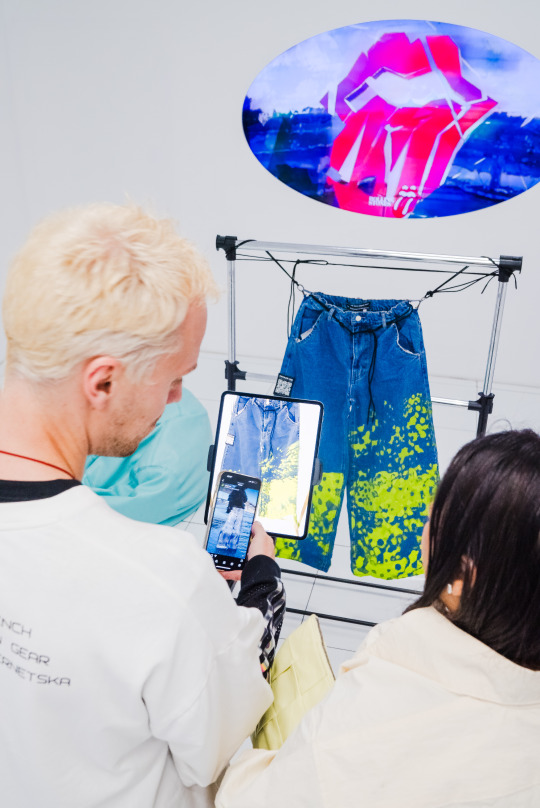
The Digital Fashion Designer’s Council (DFDC) made history with the largest in-person digital fashion showcase ever seen at Fashion Week, marking the start of their Spring/Summer 2025 (SS25) programming. Held at the immersive digital art gallery INTER_IAM in New York City, this star-studded event attracted some of the biggest names in fashion and tech, including Nicola Formichetti, Megan Kasper, Alex Wang, and key industry leaders from Chanel, Esteé Lauder, Ralph Lauren, Nike, and Kering. The exclusive, multisensory soirée kicked off Fashion Month with a spectacular fusion of fashion and technology.
The debut of Fashion Week Connect (FWC) featured interactive experiences, awe-inspiring installations, and photo-worthy moments, all set against the backdrop of 50+ screens displaying cutting-edge digital fashion. Guests enjoyed 360-degree virtual runway presentations, immersive art installations from council members, and a specially curated selection of exclusive VIP gifts.
One of the event's highlights was the AR Mirror Installation by FFFACE.ME in collaboration with Prada. Attendees were mesmerized by the AR Filter created with DFDC founding member Ines Alpha for Prada’s Paradoxe Virtual Flower fragrance, alongside a 360-degree immersive fashion runway experience. The venue came alive with over 144 digital fashion pieces from global brands, including Balenciaga and Prada, and creations by renowned digital artists like Antoni Tudisco, Fvckrender, IoDF, Glitch of Mind, and DRESSX.
Music from DJs Griffin Maxwell Brookes, Ana Boo, and Nash Petrovic set the tone for the night, while Tune.FM, one of the event’s presenting partners, provided a sneak preview of their “Summer of Love” project, which aims to revolutionize music streaming and artist monetization.
Curated by DFDC CEO and Founder David Cash, alongside council member Dani Loftus, the event spotlighted more than 55 digital fashion displays with over 144 looks, blending the worlds of fashion, art, and technology in a way never before seen at Fashion Week. Fashion Week Connect has not only set the stage for future events but also redefined the boundaries of how fashion can be experienced, bringing fashion into a whole new digital dimension.
This groundbreaking event marks a pivotal moment for the fashion industry, offering a glimpse into the future of fashion, where the physical and digital worlds seamlessly converge. With a blend of innovation, creativity, and artistry, DFDC's Fashion Week Connect is poised to become a cornerstone of Fashion Week for years to come.




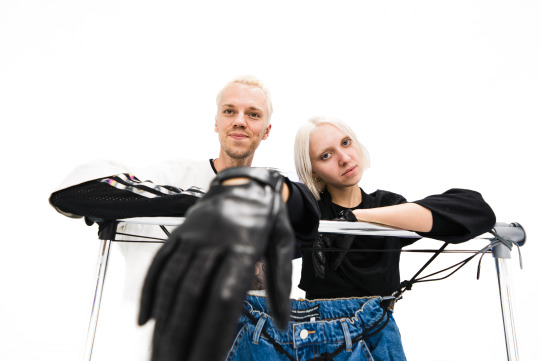
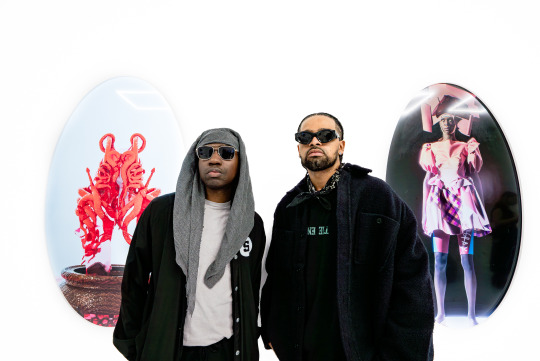




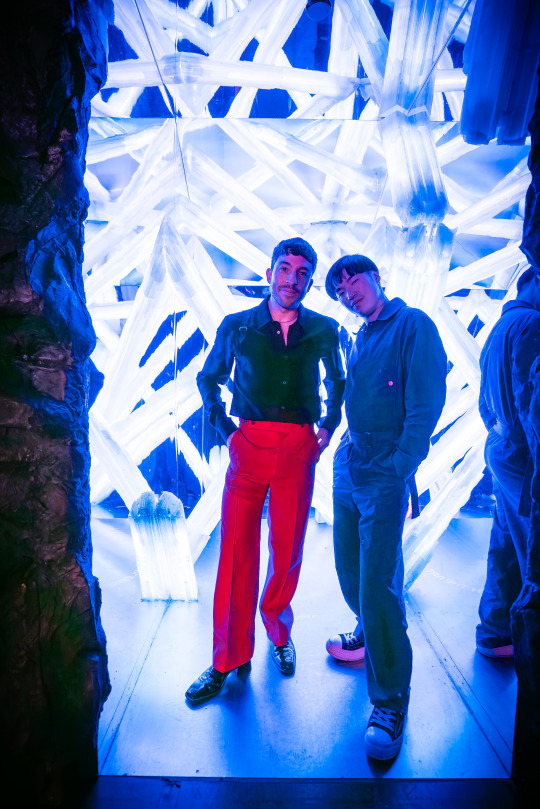





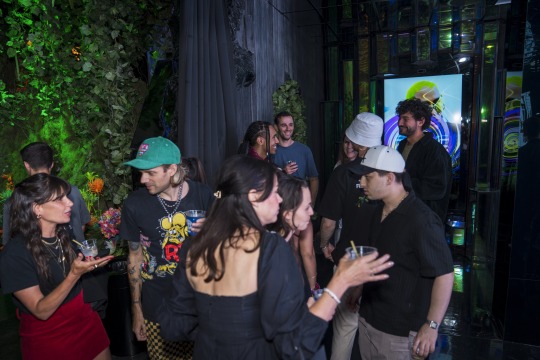
0 notes
Text
1 note
·
View note
Link
Tune.FM provides musicians with a platform to receive micropayments for streaming in its native JAM token (JAM). #Blockchain #Crypto
0 notes
Text
Tune.FM’s New Music NFT Marketplace Will Disrupt the Music Industry
http://dlvr.it/Sr2x7j
0 notes
Text
Tune.FM’s New Music NFT Marketplace Will Disrupt the Music Industry
http://dlvr.it/Sr2w4V
0 notes
Text
Tune.FM’s New Music NFT Marketplace Will Disrupt the Music Industry
http://dlvr.it/Sr2vxk
0 notes
Text
Tune.FM’s New Music NFT Marketplace Will Disrupt the Music Industry
http://dlvr.it/Sr2vGW
0 notes
Text
Tune.FM’s New Music NFT Marketplace Will Disrupt the Music Industry
http://dlvr.it/Sr2vD7
0 notes
Text
Stream Your Favorite Music with Tune. FM

Tune.Fm, a free music streaming service, is rapidly growing, and it appears on its way to become something big.
The iTunes Store and the Spotify Store are the dominant online stores for music. But they are also facing a threat from Tune.Fm. All of these stores sell a song for $0.99, and all of them let you download songs for $0.99. But Tune.Fm lets you download songs for $0.77. That's it. The advantage of Tune.Fm is that it lets you listen to a song for free, before you decide whether you actually like the song enough to buy it. The disadvantage is that they don't have a catalog of music as extensive as iTunes or Spotify, so you end up not having a lot of choices. But the advantages of Tune.Fm are that their catalog is rapidly growing and their prices are going down. iTunes and Spotify, on the other hand, have already accumulated a huge catalog of music, and their prices aren't going down. iTunes and Spotify are clearly in Tune.Fm's sights. They have already invested tens of millions of dollars in buying music distribution companies, and millions more in buying exclusive deals with record labels. But Tune.Fm's investors are not taking this lying down. They have launched a lawsuit challenging the exclusivity deals. And Tune.Fm has another advantage. iTunes and Spotify have to keep charging $0.99, because that is what their customers expect. But Tune.Fm can charge less, because their customers don't expect anything. So Tune.Fm may turn out to be a bigger winner than iTunes or Spotify. But it has a lot of work to do.
Tune.Fm is a human-powered music recommendation engine. It uses the aggregate activity of its listeners to continuously learn their tastes and their musical personas. We measure musical persona by tracking the ratio of plays to listeners of a given song or album. A music recommendation engine is interesting because it represents a new kind of social technology, a new kind of entertainment, and a new kind of business.
Tune.Fm is an online music system. You tell Tune.Fm what songs you like, and it tells you what other people with similar interests are listening to. Recently, Tune.Fm has been getting a lot of publicity. (The New York Times called Tune.Fm "the Napster of radio.") This is good publicity, but it needs a little explanation. A lot of people who talk about Tune.Fm seem to take it for granted that Tune.Fm is more social than radio. For one thing, it has "channels," which are supposed to be radio stations, but are actually just collections of songs. The person who runs the channel can edit what songs go into it, and is presumably supposed to listen to those songs. (Tune.Fm says nothing about this.) But having channels doesn't make it a social system. For one thing, you have nothing in common with the person who runs the channel. You can't imagine them. And you can't talk to them. What really distinguishes Tune.Fm from radio is that Tune.Fm can tell you what your friends and other people are listening to. But you can't see what your friends or other people are listening to. To see why, imagine you have two friends who are both listening to the same song. Tune.Fm could tell you, but you wouldn't see the information. The reason Tune.Fm can't show you what your friends and other people are listening to is simple. Tune.Fm is a paid service. It charges you a monthly fee. It wants to make as much money as it can, and it wants to make you as happy as it can. So it can't show you anything that will upset you. On the other hand, it can't show you anything that will make you happy either. That's because Tune.Fm won't
Tune.Fm is a music streaming service without ads, where you can listen to any song ever written, any time you want, for free. Tune.Fm is a music streaming service that, unlike most music streaming services, is ad-free. This means two things for you. First, there are no annoying ads interrupting your listening. You can just listen to whatever song you want, whenever you want.
Tune.Fm is a music sharing website. You sign up for a user id and a password. Then you can enter an artist name and a song title, and Tune.Fm will try to find a song by that artist. It searches databases of songs, and it downloads them for you. The databases are open-access, which means that musicians can upload their own music. The sites which most resemble Tune.Fm are Pandora and Last.FM. But their databases are less open. Pandora and Last.FM use their own databases and exploit copyright rules to limit what people can do with what they download. Tune.Fm tries to respect copyrights, and yet it allows users to do pretty much whatever they want with the songs they download. When they first joined, all the users were mostly interested in music which they could listen to and share with their friends. But now, when there are more sources of music, the users are more interested in music they can listen to without the help of their friends. So, the sites change their algorithms to give people what they like. The algorithm used by Tune.Fm is complex, and it gets more complicated every day. And Tune.Fm's success has led people to make predictions for what the algorithm will do next. These predictions are controversial, and they don't agree on much. Part of the reason Tune.Fm is controversial is that its algorithm is based on complex math, and people don't like math. Still, it's worth considering, because the success of Tune.Fm has helped to create a category: sharing music with strangers on the internet. And sharing is the future of music. Now, of all music, classical music has most benefited from sharing. Classical
For more information Website: https://tune.fm/ Whitepaper: https://tune.fm/public/landing/images/Tune.FM(JAM)WhitepaperV3.pdf Twitter: https://twitter.com/tunefmofficial Facebook: https://www.facebook.com/tunefmofficial Telegram: https://t.me/tunefm
Author Bitcointalk username: ParkYeJaeHwa Bitcointalk Url: https://bitcointalk.org/index.php?action=profile;u=3402249 Hedera Account ID: 0.0.576683
1 note
·
View note
Text
Are you an Independent Musician? Discover how Tune.fm can help

Few of us have the money, connections, or time to see every band we want. But technology makes it possible for us to listen to almost everything. Music discovery is broken. Everyone wants to discover new music, but music discovery companies make their money by matching fans to artists with narrow tastes. Tune.Fm fixes this model. We connect fans with artists based on what they like. Fans tell us the music they want to hear, and we pair them with artists from around the world who offer that music. We're not the only music discovery company. But we're different. We're fans too. We get paid in JAM tokens for discovering new music and playing the songs we love. And artists get paid directly when their fans stream their music. Tune.Fm is a music economy built on fan and artist collaboration rather than on matching fans to artists. For fans, Tune.Fm is a totally new way to find music that they love. For artists, Tune.Fm is a new way to connect with their fans and to make their music financially sustainable. We're launching soon. But the first step is to prove that there is a music economy to be built. In June, we'll be running a crowdfunding campaign on IndieGoGo. The Kickstarter-like campaign will test the business model. If it works, businesses will join us. If it doesn't work, we'll adjust the business model and try again. Tune.Fm is an experiment in capitalism that's built from the ground up to be sustainable and egalitarian. We believe in capitalism as a redistribution of wealth, not as a mechanism for concentrating wealth in a few hands. We believe that artists and fans can become partners in building and sustaining a new music economy. And we believe that building this new music
The music economy is broken. Musicians are underpaid for their work and fans are being overcharged. Tune.Fm is building a new paradigm: The Music Economy. Artists will be paid for their work and fans will access music at a much lower cost. Tune.Fm will grow the community around music and music fans. Tune.Fm is a new way for fans and artists to interact and collaborate.
The internet has changed the music industry profoundly. Price discovery happens now by streaming, not sales, and artists make more money from streaming than they do from album sales. But the distribution of streaming revenue is uneven. Artists with smaller fan bases get a smaller piece of the pie. Artists who are famous but unknown get a smaller piece. And, artists working together on an album get a smaller piece than if they were all solo artists. The artists do not get the streaming revenue, though. Streaming services like Spotify and Apple Music have to pay the record companies, who, in turn, pay them to the artists. The middlemen take a huge cut, and the middle man's cut is getting bigger. So what do you do? We thought, why don't we create a new kind of middleman? Instead of paying the record companies, let's pay them directly. And instead of splitting the revenue with the artists, let's pay them directly. That way, the artists get all the money, and instead of splitting it, we split the payments. That's what Tune.FM does. We pay the record companies directly. We pay them a fixed rate per play. And, we pay the artists directly. If fans listen to a song we're streaming, we give them tokens of the show, and the artist gets that token. If the token gets played, the artist gets money. And, if fans listen to a song we stream from a show we don't stream, we give them tokens of the show, and the record company gets that token. If the token gets played, the record company gets money. That way, fans get to discover new music. Tune.Fm is the world's first global music economy. Music has always been global, but access to it is limited. Music fans in one country can't discover new music made by artists in other countries. This is a problem, because many new and interesting artists come from other countries. Tune.Fm solves this problem by giving fans the means to support their favorite artists directly, and earning JAM tokens by discovering new music. The Tune.Fm music economy is based on the Ethereum blockchain. The blockchain empowers us to create a music network that is decentralized, fair, open, and transparent. In 2016, we launched a music discovery platform called Tune.Fm, where artists could upload their music and fans could discover it. Since then, we've become one of the largest independent music streaming services with more than 20 million monthly listeners in 200 countries. We also connect artists to fans through strategic partnerships with Shazam, Spotify, SoundCloud, Beats, and more. Today, we're excited to announce that we're launching the Tune.Fm Token Sale, which will enable fans to earn JAM tokens and help artists get paid for their work. Token Sale Details The Tune.Fm Token Sale will run from October 19 through November 20, 2017. The Token Sale will open for registration at 12:00 AM UTC on October 19, 2017. Token Sale pricing The Token Sale will have a maximum of 1.1 billion JAM tokens available at a price of $0.02 per token. Token Sale cap The Token Sale cap is 500,000 ETH, which is equivalent to $80 million USD at the time of the Token Sale. Token Sale funding allocation The Tune.Fm Token Sale funds will be divided as follows: 60%: Increase revenue through advertising and partnerships 20%: Development, marketing, and operations 10%: Community growth Token Sale bonuses The Token Sale will have a special bonus of 50% for the first 500,000 ETH raised, Tune.Fm is a music discovery platform. It connects artists with fans, and provides a new way for fans to support their favorite artists. Through Tune.Fm's tokenized revenue sharing model, artists earn tokens every time they stream their music. Fans discover and share the new music, and artists earn revenue when the songs get streamed. Tune.Fm is a music economy. A music economy is a system in which money circulates around music and musicians, and in which musicians can earn new value from their music. Artists can already earn value from music. When a record label or music company buys a song from an artist, the label or company gets a share of the artist's revenue. But that's only a portion of the artist's value. A music economy expands this value. A music economy is based on a tokenized revenue sharing model. This model has three key properties: 1. The tokenized revenue sharing model is based on tokens, not cash. Tokens are an asset, like shares or bonds. It's more like buying an ownership stake in an artist than buying a song. 2. The tokenized revenue sharing model is based on tokens, not cash. Tokens are an asset, like shares or bonds. It's more like buying an ownership stake in an artist than buying a song. 3. The tokenized revenue sharing model is based on tokens, not cash. Tokens are an asset, like shares or bonds. It's more like buying an ownership stake in an artist than buying a song.
For more information Website: https://tune.fm/ Whitepaper: https://tune.fm/public/landing/images/Tune.FM(JAM)WhitepaperV3.pdf Twitter: https://twitter.com/tunefmofficial Facebook: https://www.facebook.com/tunefmofficial Telegram: https://t.me/tunefm
Author Bitcointalk username: Andersson Reykjavik Bitcointalk Url: https://bitcointalk.org/index.php?action=profile;u=3397514 Hedera Account ID: 0.0.576598
0 notes
Text
Why the New Tune.FM User Experience Rocks

Tune.Fm is an alternative to iTunes. It is a global music marketplace and online community that enables bands, labels, and publishers to sell their music directly to fans. We let fans discover and stream music for free from anywhere in the world, collect what they like in their library, and buy their favorite music to show support for the artists they love all in one place. Tune.Fm is an alternative to iTunes. It is a global music marketplace and online community that enables artists to sell their music directly to fans on their Facebook page. We let fans discover and stream music for free from anywhere in the world, collect what they like in their library, and buy their favorite music to show support for the artists they love all in one place. Tune.Fm is an alternative to iTunes. It is a global music marketplace and online community that enables artists to sell their music directly to fans on their Myspace page. We let fans discover and stream music for free from anywhere in the world, collect what they like in their library, and buy their favorite music to show support for the artists they love all in one place. Tune.Fm is an alternative to iTunes. It is a global music marketplace and online community that enables artists to sell their music directly to fans on their YouTube channel. We let fans discover and stream music for free from anywhere in the world, collect what they like in their library, and buy their favorite music to show support for the artists they love all in one place. Tune.Fm is an alternative to iTunes. It is a global music marketplace and online community that enables artists to sell their music directly to fans on their own website. We let fans discover and stream music for free from anywhere in the world, collect what they like in their library, and buy their favorite music to show support for the artists they love all in one place. Tune.Fm is an alternative to iTunes. It is a global music marketplace and Tune.fm is a social music network that allows fans to discover, collect, and share music.
Tune.Fm is a community of music fans just like you. We are 100% free for fans, and 100% independent. We believe in artists, we believe in music, and we believe in you.
Tune.Fm is a music file hosting service that launched in June 2011 and is based out of San Francisco, California.
We all like music. Most of us have created it. Most of us have played it. Most of us like to share it with people we enjoy. Many of us have made some money out of it. Some of us are musicians, but most of us are not. Most of us live in places where we can't get the kinds of jobs where we get to make music. And most of us are discouraged by the high prices and poor quality of music. Music is a big part of our lives. We use it for fun. We listen to it at work (many of us, in fact). We listen to it in restaurants, in the car, and at the gym. We listen to streaming music services like Spotify or Pandora, or we download music from the iTunes Store. We listen to free music on sites like YouTube and SoundCloud. We listen to songs from our Facebook friends. We listen to music on YouTube, or concerts at Carnegie Hall, or TED talks, or anime, or movies. Music is everywhere. But it's also hard to make money in music. Most musicians don't make a living at it. Most musicians make less than $20,000 a year. Even on a good day, most musicians make less than $20,000 a year. We musicians are weird people. We spend a lot of time playing music. We play instruments, or sing, or make up songs, or teach people to play instruments, or design instruments, or write software to make instruments, or improvise. We play shows. We promote our shows. We write articles for magazines and newspapers. We go on tour. We teach music. We spend hours every day reading articles and blogs and books about music. So why do we do it? What makes us musicians
The vast majority of the musicians on Tune.Fm are amateurs, not professionals. Many of them are just getting started, and for many of them their goal is to be able to play music with others. Most music apps require that you play an instrument. Even the ones that don't require instruments usually require you to use a MIDI keyboard or guitar tuner. Tune.Fm does neither of these things. That might seem strange, but it is not. Most of us learned how to play an instrument by copying someone else's music. We play by ear, not by reading music. We play by feel, not by the rules. Why do musicians think this way? Because the original technologies weren't designed for playing by ear. MIDI is designed so you can read music. But most of us don't read music. We play by ear. The piano keyboard is designed so you can play by touch, not by reading. But most of us don't read music. We play by ear. Why do guitar tuners require you to play a guitar? Because most musicians don't play by touch. Most of us play by ear.
For more information Website: https://tune.fm/ Whitepaper: https://tune.fm/public/landing/images/Tune.FM(JAM)WhitepaperV3.pdf Twitter: https://twitter.com/tunefmofficial Facebook: https://www.facebook.com/tunefmofficial Telegram: https://t.me/tunefm
Author Bitcointalk username: Ryoko Kenshin Bitcointalk Url: https://bitcointalk.org/index.php?action=profile;u=3398199 Hedera Account ID: 0.0.575823
0 notes
Text
Tune.Fm Has Built a Global Music Brand

Tune.Fm has built a global music economy that empowers artists by giving them a way to earn direct payment for their creations. The Tune.Fm technology enables fans to discover new music from artists around the world. Support artists directly by streaming their music, and earn JAM tokens discovering new music. Because the music gets played, the artist gets paid. Tune.Fm enables artists to monetize their music directly. Tune.Fm doesn't charge artists a royalty on any revenue generated by their music. Artists accept a direct payment from fans, and this payment is denominated in JAM Tokens, a utility token on the Ethereum Blockchain. Tune.Fm gives artists direct control over how fans and artists interact. Artists publish their songs and set pricing. Fans then listen to songs, and if they like them, they pay the artist directly in the Tune.Fm Marketplace. Tune.Fm brings artists into the global economy. Tune.Fm gives artists a way to earn money directly in the global community. Tune.Fm enables fans to discover new music from artists around the world. Tune.Fm represents a new, decentralized, global music economy. Tune.Fm helps artists distribute their music globally. Tune.Fm musicians publish their music directly to the Tune.Fm Marketplace, and Tune.Fm in turn distributes it to Tune.Fm's global audience. The Tune.Fm Marketplace is Tune.Fm's distribution platform, and it is the only place where Tune.Fm's artists can distribute their music. Musicians who use Tune.Fm's marketplace can publish their music using a Tune.Fm App, Tune.F Tune.Fm uses blockchain technology to enable fans to discover music and earn tokens to support artists directly. As a listener, you can support your favorite artists by joining their campaigns. A campaign is like a Kickstarter, but with crowdfunding as a direct distribution channel. Artists use campaign pages to post demos, recordings, videos and, in some cases, live performances. When a listener listens to an artist's music, she earns tokens. Tokens are earned based on the quality, popularity and replay value of the music. When listeners share an artist's music with their friends, they also earn tokens. Tokens are used in Tune.Fm's digital marketplace. The marketplace allows fans to directly support artists by purchasing their music. Tune.Fm's token, the JAM, is the currency used on the Tune.Fm platform. The JAM token is a utility token that allows fans to earn tokens, and artists to purchase tokens. The JAM token will be integrated into Tune.Fm's digital marketplace. To earn tokens in the marketplace, fans will need to buy JAM tokens. A lot of people, artists and listeners alike, suffer from what economists call the "bandwagon effect". This is the idea that the number of people who like something grows faster than the number of people who dislike it. In extreme cases, it's like a disease, and a cure could be as simple as "don't like". But in the real world, the cure has to be more subtle. For artists, the cure is to give people a reason for liking your stuff. They have to make something that people want to listen to, not just something that they think people will like, which is what the bandwagon effect means. For listeners, the cure is to give them something that they want to listen to in the first place. Your favorite band may be great, but if your favorite band hasn't made anything in years, it's hard to say that you like them. Tune.Fm solves both problems. First, Tune.Fm's discovery engine uses artificial intelligence to match listeners to artists, based on what they do. So listeners will find new music that is interesting to them, not just something they like. Second, Tune.Fm's marketplace uses smart contracts to connect artists and listeners directly, where each pays for what they get. This gives listeners an incentive to listen, because while they can stream for free, the artists get paid. Third, Tune.Fm's minimalist interface means listeners won't need to do anything but listen. But if they want to get more involved, they can vote on songs they like, and write reviews. This lets artists get the information they need to make more of what they want to make. Tune.Fm's mission is to make discovery as painless and efficient as possible. We believe discovery should be effortless and enjoyable, and that artists should be paid fairly for their work. Tune.Fm is a music economy that enables fans to discover new music from artists around the world. We enable fans to listen to music. We help them discover new music. We give fans an opportunity to earn tokens called JAM. JAM tokens are an Ethereum ERC20 token. The tokens are the currency of the music economy, and fans can buy, sell, and earn JAM. Artists get paid when their fans listen to music. They get paid when their music is streamed. We stream music for free, but artists get a percentage of your listening time. We charge artists 1% of your listening time. In exchange for 1%, artists get 20,000,000 JAM tokens. That's 20,000,000 JAM. Artists get tokens just like you and I do. They earn tokens by streaming music, and their fans listen to the music. Tune.Fm is a service that makes it easy for artists to connect with their fans, and for fans to discover new music. Artists upload their music, fans listen to it, and the artists get paid. Fans listen for free, and can earn tokens for discovering new music. What Tune.Fm does is simple, but to make it work, we needed to build a complex system of interactions. Music can be a precious and valuable thing. But it is also a commodity. If you are a musician, it is a commodity like any other, and like any other commodity, it is hard for you to keep control over it. It has value, but it also has value to someone else. So, what do you do? Some musicians work under exclusive contracts, one contract at a time, with one or a few big companies. Other musicians are free agents, working for whoever will offer them the best deal, regardless of price. Then there's Tune.Fm, a global music economy where musicians get paid directly for their work. Tune.Fm pays musicians more, on average, than any of the other alternatives. That's because Tune.Fm is decentralized, and because the music economy it enables is more efficient, and because it accepts no fees from anyone who makes money off music. Tune.Fm lets musicians keep their music to themselves, however long they please. There's another advantage. The musicians in Tune.Fm have total control over how their music is used. The musicians in Tune.Fm decide what gets played and what doesn't, just like they used to, but in Tune.Fm they do it directly and in real time, with direct, instantaneous feedback from their audience. How does Tune.Fm work? Tune.Fm's decentralized music economy runs on blockchain, and it needs a blockchain. So Tune.Fm relies on Ethereum. And Ethereum needs developers. So Tune.Fm needs programmers. For more information Website: https://tune.fm/ Whitepaper: https://tune.fm/public/landing/images/Tune.FM(JAM)WhitepaperV3.pdf Twitter: https://twitter.com/tunefmofficial Facebook: https://www.facebook.com/tunefmofficial Telegram: https://t.me/tunefm Author Bitcointalk username: jennever charlotte Bitcointalk Url: https://bitcointalk.org/index.php?action=profile;u=3380232 Hedera Account ID: 0.0.575761
0 notes
Text
FIRST LIVE SESSION DONE!!
Dungeons and Airwaves Season 4 has officially started! We run live on tune.fm every Monday night at 8pm AEST, so if you want to tune in live you can do so here.
The podcast will be uploaded tomorrow afternoon, and I’ll drop a link here for anyone who wants to listen :)
I had so much fucking fun running for everyone! The characters are bloody fantastic and I’m digging their dynamic already.
5 notes
·
View notes
Text
hearo.fm Sets Out to Revolutionise the Global Music Industry
hearo.fm Sets Out to Revolutionise the Global Music Industry
hearo.fm Inc. has announced that they will be launching the JAM token cryptocurrency built upon Hedera Hashgraph’s distributed ledger technology (DLT), which will be fully integrated with a new music streaming service called tune.fm. Founder of hearo.fm, Andrew Antar, will be presenting ‘Hedera for Music Streaming Micropayments‘ at Hedera18 and via livestream.
The music technology startup…
View On WordPress
0 notes
Text
Ocak Ayı Kripto Para Listeleme ve Delist Duyuruları 2
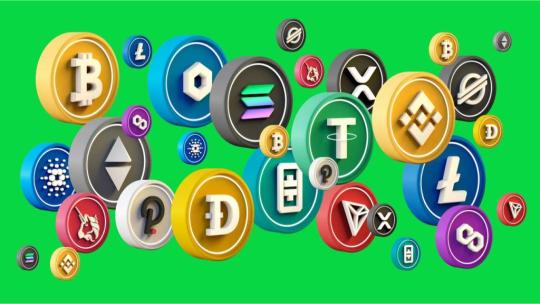
Geçen hafta ve bugün bulduğumuz kripto para borsalarının haftalık dijital varlık listeleme ve delist duyurularını sizin için derledik. İlgili kripto para borsalarına Kripto Kritik komisyon indirimiyle kayıt olmak için tıklayın. AscendEX Listeleme: FNDZ (FNDZ) Pontoon (TOON) BigONE Listeleme: Gama (GAMAO) Experimental Finance (EXFI) FINX (FINX) Light DeFi (LIGHT) Neos (NCR) Binance Eklenen işlem çiftleri: ATOM/ETH DUSK/BUSD EGLD/ETH ICP/ETH LUNA/BRL LUNA/UST NEAR/ETH ROSE/BNB VOXEL/ETH Delist: Populous (PPT) Swerve (SWRV) Bitforex Listeleme: TCGCoin 2.0 (TCG2) Crypto Bank (CBT) Ronin (RON) Qredo (QRDO) Braintrust (BTRST) BitMart Listeleme: Katana Inu (KATA) WorldPlusCoin (WPL) Gennix (GNNX) Avocado DAO (AVG) ImpactXP (IMPACTXP) Solice (SLC) Maple Finance (MPL) Buff Doge Coin (DOGECOIN) ZELDA INU (ZLDA) TCGCoin 2.0 (TCG2) Shibametaverse (SHIBAMETA) Bitrue Listleme: Green Zone XRPL (GZXXRPL) Metagalaxy Land (MEGALAND) Tr3zor (TR3) Bittrex Listeleme: Aave (AAVE) Avalanche (AVAX) BKEX Listeleme: Kadena (KDA) Oasis Protocol (ROSE) FASTSWAP (FAST) Audius (AUDIO) MetaDoge (METADOGE) Flux (FLUX) MonstaVerse (MONSTR) THORChain (RUNE) Amp (AMP) Secret Network (SCRT) Syscoin (SYS) Hive (HIVE) Celsius (CEL) Ribbon Finance (RBN) Changelly Listeleme: SUKU (SUKU) Reserve (RSR) Santos FC Fan Token (SANTOS) Manchester City Fan Token (CITY) Biconomy (BICO) CoinEx Listeleme: Orion (ORION) Router Protocol (ROUTE) DeFi Land (DFL) Dfyn (DFYN) Realy (REAL) Alchemy Pay (ACH) Crex 24 Delist: Ethereum Meta (ETHM) AfinCoin (AFIN) DMD Diamond (DMD) Crypto.com Listeleme: Tectonic (TONIC) Oasis Network (ROSE) DigiFinex Listeleme: Crypmix (CMX) BinaryX (BNX) SCALLOP (SCLP) FINEXBOX Listeleme: LucidLandsGem (LLG) BUNSCAKE (BSCAKE) Ouse Token (OUSE) Tune.Fm (JAM) FTX Listeleme: ConstitutionDAO (PEOPLE) Gate.io Listeleme: Zignaly (ZIG) F2C (F2C) Synchrony (SCY) SolChicks (CHICKS) Galaxy Fight Club (GCOIN) ClearDAO (CLH) Solice (SLC) MonkeyBall (MBS) Hotbit Listeleme: RocketCoin (ROCKETCOIN) Dream Island (DRIS) INDIA COIN (INDIA) Synapse (SYN) Digichain (DIGICHAIN) CryptoDrop (CDROP) SolarMineX (SMX) ShibaDoge (SHIBDOGE) GenesysGo Shadow (SHDW) Gains Network (GNS) NFTSOCIAL (NSC) Katana Inu (KATA) Antis Inu (ANTIS) Sunflower Farm (SFF) Captain Inu (CPTINU) Huobi Listeleme: Celo (CELO) Solice (SLC) Efinity (EFI) Kraken Listeleme: Kintsugi (KINT) KuCoin Listeleme: Helium (HNT) Revuto (REVU) Good Games Guild (GGG) ClearDAO (CLH) LBank Listeleme: GreenCoin (GRC) Lets Go Brandon! (FJB) Zeptacoin (ZPTC) Dragonvein (DVC) Bitcicoin (BITCI) Triall (TRL) REAPCHAIN (REAP) KingPad (CROWN) Light Year (LC) SCARDust (SCARD) GamingShiba (GAMINGSHIBA) AXL INU (AXL) Advanced United Continent (AUC) Dragonvein (DVC) WELUPS (WELUPS) Kaldırılan işlem çiftleri: AMO/ETH DXCT/USDT BBC/USDT FST/USDT BTRST/USDT CVP/USD TPOS/USDT FISH/USDT Read the full article
0 notes